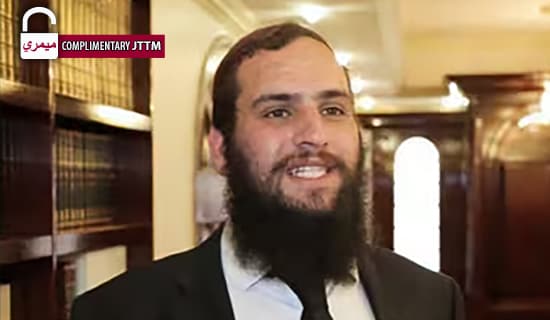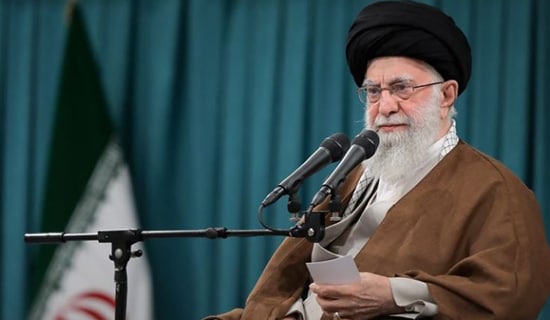Recently, some of the younger members of the Muslim Brotherhood have called for a revolution inside the movement, demanding recognition for the vital role of youth and women within the Brotherhood and greater representation in the movement's institutions. They also demanded that the Muslim Brotherhood Shura Council and the Office of the General Guide be dissolved, pending open elections under proper judicial oversight. The members threatened that if these demands were not met, they would demonstrate en masse with the aim of overthrowing the movement's leadership.
Though senior Muslim Brotherhood members rejected the possibility of a revolution, the movement's General Guide, Dr. Muhammad Badi', and his deputy Khairat Al-Shater, met with the youth representatives and listened to their demands. At the same time, other groups of young Muslim Brotherhood members launched a counter-campaign on Facebook, expressing support for the current leadership and urging the youth to remain loyal to it.
Several days later, Kamal Samir Farag, the activist considered to be the organizer of the youth revolution, denied reports that he intended to overthrow the movement's leadership. He clarified that his only wish was to convene the Muslim Brotherhood's General Conference in order to hold a dialogue on the changes required in light of the new circumstances.
The following are the demands of the Muslim Brotherhood youth, and excerpts from some responses to their campaign.
The Demands of the Muslim Brotherhood Youth
On February 23, 2011, the "coordinators of the Muslim Brotherhood youth revolution" held a conference in Alexandria at which they presented their demands. They warned that if their demands were ignored, over 30,000 would demonstrate on March 17 to advance their cause.
The demands included the following:
1. To dismantle the Office of the General Guide and establish a temporary committee to run the movement until the holding of open elections under judicial oversight. The temporary committee will be headed by former general guide Muhammad Mahdi 'Akef – the only holder of this office who left voluntarily instead of remaining in office until his death.
2. To dissolve the Muslim Brotherhood Shura Council, disconnect it from the General Guide's Office, and vote in a new council in open elections.
3. To elect new regional Muslim Brotherhood councils.[1]
4. To form a Muslim Brotherhood party, separate from the movement itself, whose name will be determined by vote and whose leader will be elected by all Muslim Brotherhood members.
5. To include at least two women in the General Guide's Office, dismantle the special women's department, and give women the right to vote on political issues.[2]
6. To develop the Muslim Brotherhood's education programs and media outlets, and open newspapers and satellite TV channels to spread the movement's message.[3]
Muslim Brotherhood activist Ahmad Nazili explaned: "[The recent weeks saw] the successful January 25 revolution and the overthrowing of Mubarak, and the next few days will see a revolution within the [Muslim Brotherhood] movement, leading to a great improvement in its functioning... Circumstances have changed completely. Many issues that were [previously] deferred are now on the agenda. The coming period will see an intifada within the Muslim Brotherhood... because the pressures that were exerted on the movement by the security [apparatuses] have been lifted..."[4]
The general coordinator of the Muslim Brotherhood youth revolution, Kamal Samir Farag, said that the general guide should be an individual aged 30-55 who has served in the General Guide's Office or in one of the regional councils for at least 10 years. He added that the Brotherhood's institutions had been formed in the days of security constraints on the movement, but that today, following Mubarak's ouster, new bodies should be elected. "[In the Mubarak era,] security restrictions kept us from acting in the open, but now, after the January 25 revolution, circumstances have changed, and many groups are demanding reforms in the movement," he said. Asked whether he was afraid to be expelled from the movement, or to fail in his campaign for reform, he replied: "Egypt after the January 25 [revolution] is not the Egypt of before [the revolution], and that includes the Muslim Brotherhood. [Before,] it was possible for the movement to expel [a member] for various reasons, but now things are different. We will not let anyone expel us, because this movement is ours before it is theirs. We also know that if we go [only] half way in our revolution, we will be digging our own graves..."[5]
Muslim Brotherhood Leaders: The Call for Revolution Is Alien to the Movement
The Muslim Brotherhood's leaders denied the possibility of a revolution, stressing that they were willing to hear ideas and suggestions from any movement member. General Guide Muhammad Badi' and his deputy Khairat Al-Shater held several meetings with the representatives of the youth, heard their demands, and referred them to the relevant Muslim Brotherhood bodies.[6]
Dr. 'Issam Al-'Arian of the General Guide's Office said that the media reports about plans for an internal revolution were nothing but "incitement." The Muslim Brotherhood leadership, he added, "would never limit anyone's freedom of expression or [avoid] communicating with the younger members, for they are the foundation of the movement..."[7] Another Office member, Dr. 'Abd Al-Rahman Al-Bar, commented that the young Brotherhood members had always been reasonable and responsible in their conduct, and that their present call for a revolution was alien to the spirit of the Muslim Brotherhood. Both he and Al-'Arian denied they had met with representatives of the dissident group.[8]
The movement's deputy general guide, Khairat Al-Shater, who was released from prison after the January 25 revolution, said that the internal revolution in the Muslim Brotherhood was an invention of the media. He added that demands for reform, such as demands for amendments to the movement's charter, were not exclusive to the youth, and that many issues would have to be reassessed, such as the movement's attitude toward women and Copts, and the platform of its political party. He conceded that, in the past, the movement had given insufficient opportunities to youth and to women, out of a concern that they might not be able to withstand the pressures and persecution of the regime – but that times had changed.[9]
The official Muslim Brotherhood website likewise denied the reports about a rebellion. It stated that the movement's youth rejected these press reports, and that the daily which had published them, Al-Masri Al-Yawm, had ties with the security apparatuses and was therefore unreliable. The bond between the movement's youth and its leadership, the website declared, was too strong to be affected by such reports.[10]
A few days later, the website posted an interview with the leader of the youth initiative, Kamal Samir Farag, who denied any intention to stage a revolution. He explained that his remarks had been exaggerated by the media and misconstrued, and that his only wish was to convene the movement's annual conference in order to discuss the changes required by the new circumstances. He added that he respected the movement's leadership, and that he had chosen the wrong way to raise his demands.[11]
Internet Campaign in Support of the Current Muslim Brotherhood Leadership
Several other groups of Muslim Brotherhood youth have launched an Internet campaign opposing the call for revolution. One group started a Facebook page titled "We Muslim Brotherhood Youth Are Hand in Hand with our Leadership." The page, which has thousands of fans, stresses that the movement's young members support the leadership and maintained ties of mutual respect with it.[12]

Another group launched a campaign titled "Project for Renewing the Oath of Loyalty to the [General] Guide." Its Facebook page invites Muslim Brotherhood members to sign a statement saying "I, a young member of the Muslim Brotherhood, hereby declare my faith in the honorable General Guide, Dr. Muhammad Badi', in his Office, and in the movement's Shura Council" (see the green banner on the right side of the page below).[13]

Al-Sharq Al-Awsat Editor: Mubarak's Regime Was the Glue That Held the Muslim Brotherhood Together
The editor of the London daily Al-Sharq Al-Awsat, Tariq Alhomayed, wrote that the hostility to the Mubarak regime had been a uniting factor for the Muslim Brotherhood, and that with Mubarak gone the time was ripe for an upheaval within the movement: "The mere fact that Muslim Brotherhood youths are planning to recruit close to 30,000 members, and to stage a revolution against the old faces [in the movement], indicates that the members feel disgruntled. [They are dismayed that] their movement has aged, and that an exclusive clique controls its decisions – [especially considering that] the Brotherhood itself called on the former Egyptian regime, and on the Arab states, [to allow] greater pluralism and openness, among other demands.
"This youth revolution within the Brotherhood is not a mere imitation of the January 25 revolution [in Egypt], for young members have called for a revolution inside the movement in the past. But naturally, the clandestine [nature of] the Brotherhood's activity, and its hostile relations with the former Egyptian regime, helped the movement to maintain its cohesion – because, as everyone knows, a [common] enemy is a uniting factor. With the regime threatening the movement as a whole, the Brotherhood managed to [contain] its malcontents. But today, things are different...
"All this pertains not only to the Muslim Brotherhood. As a colleague of mine said, 'Who knows, maybe we will see a youth revolution in Hizbullah soon.' But it looks as though the success of such a revolution depends on the success of the Green Revolution in Iran."[14]
Endnotes:
[1] Al-Masri Al-Yawm (Egypt), February 28, 2011.
[2] Al-Misriyoun (Egypt), February 25, 2011.
[3] Ikhwan.net, February 25, 2011.
[4] Al-Shurouq (Egypt), February 27, 2011.
[5] Al-Masri Al-Yawm (Egypt), March 1, 2011.
[6] Ikhwanonline.com, March 2, 2011; Al-Masri Al-Yawm (Egypt), March 8, 2011.
[7] Al-Sharq Al-Awsat (London), March 1, 2011.
[8] Al-Masri Al-Yawm (Egypt), March 1, 2011.
[9] Al-Shurouq (Egypt), March 6, 2011.
[10] Ikhwanonline.com, February 28, 2011.
[11] Ikhwanonline.com, March 7, 2011.
[13] http://www.facebook.com/album.php?profile=1&id=156373374418918.
[14] Al-Sharq Al-Awsat (London), March 2, 2011.








